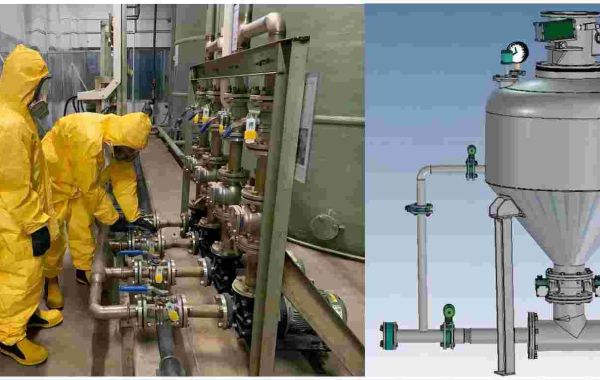In the intricate world of industrial processes, precision often reigns supreme. When it comes to introducing essential chemicals for optimal performance and flow, static chemical injection systems deliver with meticulous accuracy and unwavering reliability. Let's delve into the heart of these systems, exploring their advantages and the vital role they play in a multitude of industries.
What is a Static Chemical Injection System?
A chemical injection system, as the name suggests, precisely meters and introduces specific chemicals into a process stream. A static chemical injection system, in particular, utilizes a reservoir tank to store the chemical concentrate. This tank is pressurized with an inert gas, typically nitrogen, which acts as the driving force for injecting the chemical into the target process line. Unlike dynamic systems that rely on electric motors or hydraulics, static systems operate solely on gas pressure, making them simple, robust, and often the preferred choice for low-flow applications.
Key Components of a Static Chemical Injection System:
- Chemical Reservoir Tank:This tank houses the concentrated chemical solution and is equipped with a pressure gauge and level indicator for monitoring purposes.
- Gas Pressure Regulator:This component regulates the nitrogen gas pressure supplying the system, ensuring consistent and controlled delivery of the chemical.
- Check Valve:This valve prevents backflow of the process fluid into the chemical reservoir, safeguarding the integrity of the system.
- Metering Valve:This valve precisely controls the flow rate of the chemical solution based on predetermined settings.
- Injection Point:This is the point where the metered chemical enters the target process stream.
Advantages of Static Chemical Injection Systems:
- Simple and Reliable Design:The absence of moving parts minimizes maintenance requirements and increases system lifespan.
- Precise Dosing:Metering valves enable accurate control of chemical flow, optimizing process efficiency and minimizing waste.
- Safe and Leak-Free Operation:Gas pressure eliminates the risk of leaks associated with electric or hydraulic pumps.
- Cost-Effective:Compared to dynamic systems, static systems often require lower initial investment and operational costs.
- Versatility:These systems can be adapted to handle a wide range of chemicals and flow rates, catering to diverse industrial needs.
Applications of Static Chemical Injection Systems:
- Oil and Gas Production:For corrosion inhibition, paraffin control, and flow assurance in pipelines and wellbores.
- Water Treatment:For pH adjustment, disinfection, and scale prevention in boilers and cooling towers.
- Chemical Processing:For maintaining optimal reaction conditions and product quality in various chemical manufacturing processes.
- Power Generation:For corrosion control and boiler water treatment in power plants.
- Food and Beverage Industry:For sanitation and hygiene control in food and beverage processing lines.
Conclusion:
Static chemical injection systems offer a compelling blend of simplicity, precision, and reliability, making them a valuable asset in various industrial applications. Their ability to accurately introduce essential chemicals ensures optimal process performance, minimizes waste, and enhances overall operational efficiency. As the demand for precise chemical dosing continues to grow, static systems are poised to play an increasingly vital role in a wide range of industries, ensuring smooth, efficient, and cost-effective operations.








